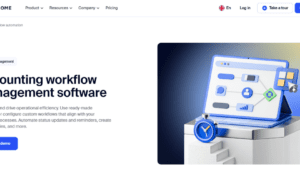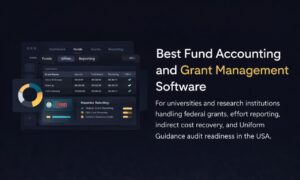In the United States, businesses that lease equipment or real estate must be compliant under various regulations set forth by the IRS. Specifically, these regulations are enforced by the Financial Accounting Standards Board (FASB) and Governmental Accounting Standards Board, and require businesses to mind proper lease accounting rules in all of their filings.
Is your business familiar with lease accounting standards? Take a look at the different areas of lease accounting you should know.
Capitalization of Leases
One such rule is the capitalization of leases. This requires businesses to list leased equipment or real estate as an asset on their balance sheets, and to carry a corresponding liability for the lease payments. This rule helps ensure that businesses are not hiding any significant liabilities from their investors or other stakeholders.
Impairment of Assets
Another important rule is the impairment of assets. If a business expects that it will not be able to continue making its lease payments, it must take an impairment charge against the value of the leased asset on its balance sheet. This charge represents the estimated loss that the business will suffer if it has to break its lease agreement early.
By following these and other lease accounting rules, businesses can provide greater transparency and accuracy in their financial statements. This, in turn, allows investors to make more informed decisions about where to invest their money.
How Do Businesses Stay Compliant with Lease Accounting Rules?
To stay compliant with the new lease accounting standards, businesses should consult with a qualified accountant or financial advisor. These professionals can help businesses understand the specific rules that apply to them, and ensure that they are compliant in all of their filings.
Lease accounting standards are important for businesses to understand, as they help ensure greater transparency and accuracy in financial statements. By working with a qualified accountant or financial advisor, businesses can stay compliant with these standards and avoid any potential penalties.
Invest in the Right Software
Lease accounting software is a vital tool to helping your business stay compliant with the various regulations set forth by the IRS. By using this type of software, you can ensure that you are correctly capitalizing leases, taking impairment charges, and filing all other necessary paperwork. Not only will this help keep you compliant, but it can also save you time and money in the long run.
You’ll want to make sure the software you choose is fully vetted and highly reviewed from other business owners.
Deadlines
Similar to taxes with the IRS having a deadline of April 15th each year, there are deadlines to lease accounting types too. The FASB and GASB set forth a deadline of December 15th for all entities to file their lease accounting paperwork. This is due to the fact that lessees must include their leased assets on their balance sheet as of the beginning of the fiscal year.
This may seem like an early deadline, but it’s important to remember that these filings are due to the impact of leases on a company’s financial statement. This means that if your business hasn’t started leasing any new equipment or real estate, you likely won’t need to file until next year.
Continuing Compliance
Following proper lease accounting rules is not a one-time effort. Be sure to keep your business compliant and consult with your future advisor on any additional questions.



































